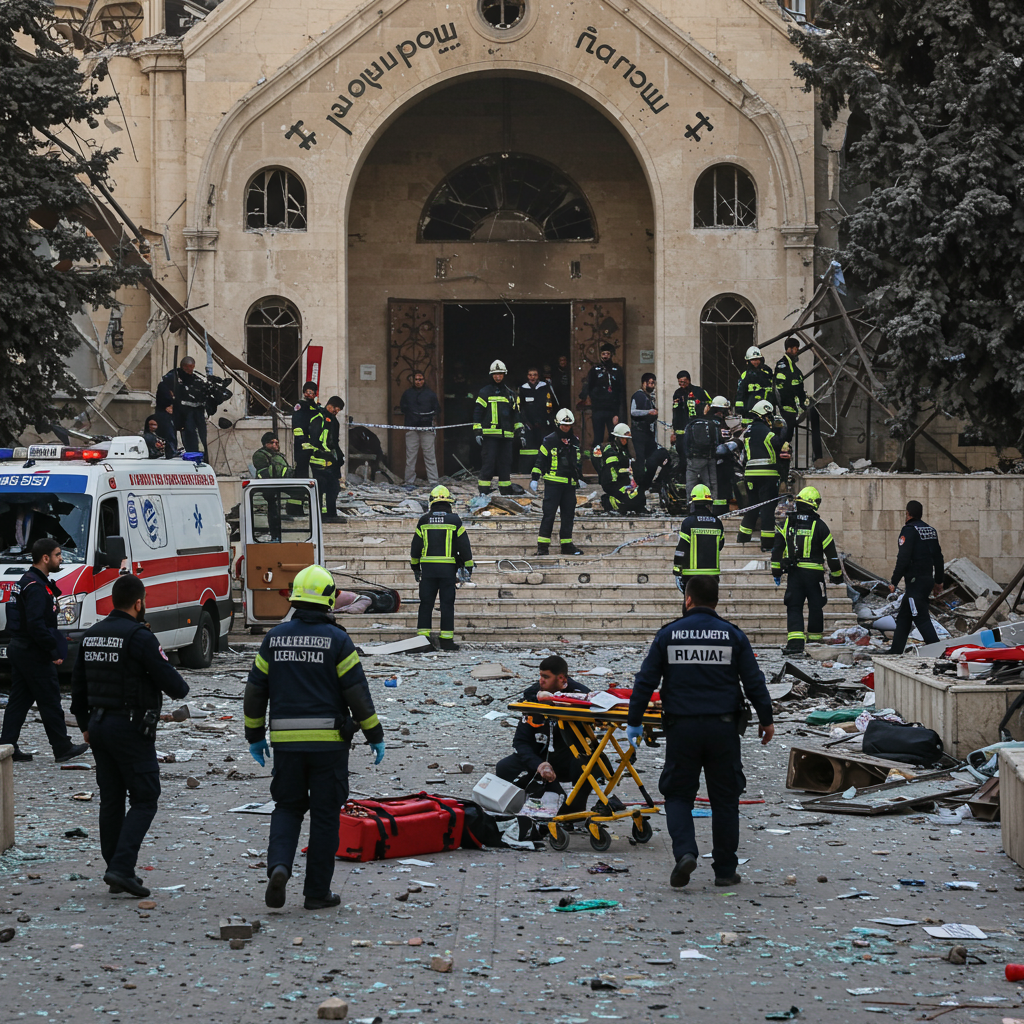Deadly Suicide Attack Strikes Church in Damascus
A devastating suicide bombing rocked a church in Syria’s capital, Damascus, on Sunday, June 22, 2025, killing and injuring dozens of worshippers. The attack, attributed to the Islamic State (ISIS) group, unfolded during Sunday mass at the Mar Elias (Saint Elias) Greek Orthodox Church in the Dweila neighborhood.
Reports from the scene indicate a powerful blast occurred inside the church building. Witnesses described the attacker detonating an explosive belt. Syrian state television and the Interior Ministry later confirmed the incident was a suicide attack carried out by an ISIS member.
According to the Syrian Interior Ministry, the perpetrator first entered the church, opened fire on those inside, and then detonated an explosive vest. One security source, speaking anonymously, suggested that two men may have been involved in the assault.
Casualties and Devastation
The scale of the tragedy became quickly apparent. While early reports from witnesses and security sources indicated at least 15 people were killed, later figures citing health authorities and other sources suggested the death toll could be higher, with some reports stating at least 20 fatalities. Dozens more were injured in the blast, with the Syrian health ministry reporting 52 people sustained injuries. Heartbreakingly, some local media and reports from first responders noted that children were potentially among the casualties.
Images and live streams from the site, including footage shared by Syria’s civil defence group, the White Helmets, revealed the extent of the destruction. The interior of the Mar Elias Church suffered significant damage, with shattered wooden fittings and pews strewn about, masonry destroyed, and pools of blood visible on the floor.
Context and Concerns
This brutal attack marks a concerning development in Syria, representing the first suicide bombing within Damascus since the overthrow of Bashar al-Assad by an Islamist-led rebel insurgency in December. The attack on a Christian church also occurs during a transitional phase under the leadership of President Ahmed al-Sharaa, who has publicly stated his commitment to protecting minority communities in Syria.
Despite years of efforts to dismantle the group and its significant loss of territory, the bombing highlights the continued ability of ISIS to exploit security gaps and carry out deadly attacks. Security sources noted this was reportedly the first successful ISIS attack on a church in Damascus since Assad’s fall, although attempts had been made previously. The incident also fuels growing concerns about the potential presence and activity of extremist sleeper cells across the war-torn country, particularly as the new government reportedly seeks to consolidate its control and build relations with minority groups.
Following the explosion, security forces and emergency services rapidly responded to the scene to provide aid and secure the area. The international community has begun reacting to the violence; the Greek foreign ministry strongly condemned the “abhorrent terrorist suicide bombing” and called on Syrian authorities to hold those responsible accountable and ensure the safety of Christian and other religious communities.
The attack serves as a stark reminder of ISIS’s history of targeting religious minorities in Syria, echoing past atrocities such as the major bombing targeting Shiite pilgrims in Sayeda Zainab in 2016.



